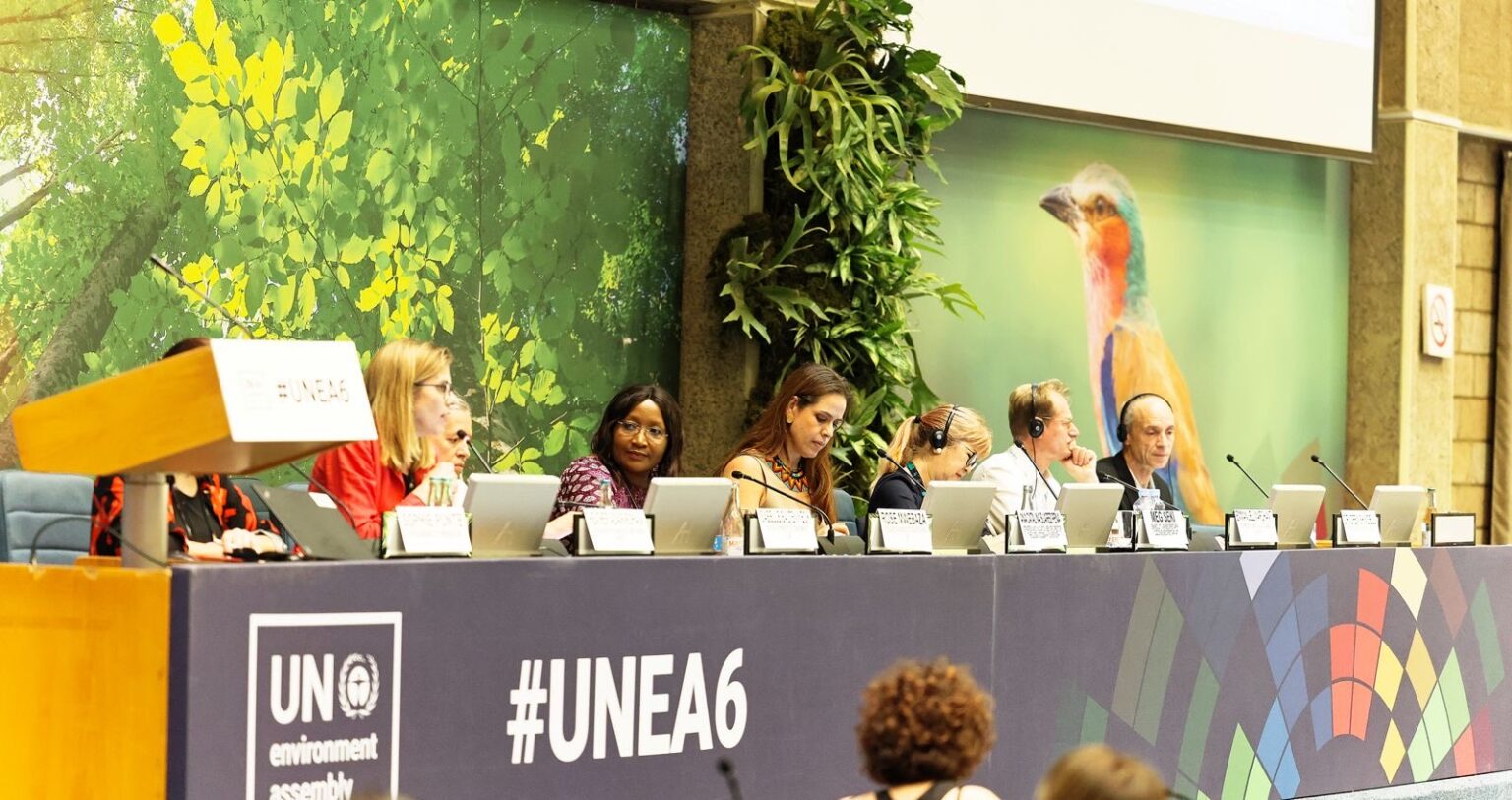- Clean Air Flagship was launched to save lives and slow climate change by boosting cooperation and reducing pollutant emissions.
- UNEP and CCAC’s Used Heavy Duty Vehicles and the Environment report provides a roadmap to reducing the sector’s emissions through standardizing, monitoring, and greening strategies
- The launch of a significant cost of inaction study supports the economic case to act on short-lived climate pollutants to limit hazardous global warming and climate disasters.
Government Ministers and partners of the UNEP-convened Climate and Clean Air Coalition (CCAC) have this week put in place a raft of integrated climate and clean air initiatives designed to combat the triple planetary crisis of climate change, pollution, and biodiversity loss.
At the CCAC’s annual Climate & Clean Air Ministerial Meeting, which took place in Nairobi, Kenya, this week ahead of the sixth session of the UN Environment Assembly (UNEA-6), countries and partners launched a Clean Air Flagship effort to provide a platform to boost regional coordination and private sector engagement, data-led policy action, financing, science and advocacy.
Progress on scaling up climate financing
Representatives from the public, private, and non-profit sectors discussed how to scale up the implementation of country commitments to reducing emissions through the Global Methane Pledge and the Kigali Amendment through transformative action across critical sectors.
During the meeting, the UN Environment Programme (UNEP) and the CCAC launched a new report, Used Heavy Duty Vehicles (HDVs) and the Environment, which reveals that CO2 emissions associated with heavy-duty vehicles have surged by over 30 per cent since 2000 and outlines a roadmap for reducing sector emissions through standardizing, monitoring, and greening freight strategies.
“We need to push harder on super pollutants. I encourage all of you to build on the momentum from COP28. Include super pollutants in Nationally Determined Contributions as they are being renewed.
“Finalize Methane Roadmaps. And, crucially, find new ways to finance action,” said Inger Andersen, UNEP’s Executive Director.
“Just as you need a superhero to defeat a supervillain, we need solutions to face down super pollutants. And we need you to mastermind these solutions.”
Cities are often on the front line of pollution and climate action but have limited access to finance, so the CCAC provides platforms to discuss the importance of multi-level governance, including through its work with the C40 Cities network.
Partners also welcomed a CCAC Technology and Economic Assessment Panel to help close the gap between technologies and finance by focusing on the cost of measures, business models, and how to overcome barriers to scaling up climate finance.
“I think everyone here knows that we’re far from winning the fight for clean air, clean water, and a healthy planet. All our work — the plans we have put together for clean air and a healthy planet — must be turned into action and institutions. Without that, the planet remains in peril, our air dirty, and our water undrinkable,” said Ibrahim Auma, County Minister, Green Nairobi.
Read also: UNCTAD raises red flag as geopolitical tensions, climate change hit global trade
Climate and Clean Air Coalition
The Climate and Clean Air Coalition exemplifies the principles of multilateralism and robust partnership, showcasing how coordination and cooperation helps to tackle multiple crises.
Ghana sets an example as a founding member, pioneering the integration of short-lived climate pollutants and other air pollutants into our fourth official National Greenhouse Gas Inventory submitted to the UNFCCC,” said Peter Dery, CCAC Co-Chair and Director, Environment Division Director at the Ministry of Environment, Science, Technology and Innovation in Ghana.
“The very essence of life starts with a breath, a gasp of air that signifies the beginning of our journey on this Earth. Yet, for too many across our globe, this fundamental act of breathing has become a hazard, a risk, a gamble against the odds of pollution and climate-induced adversities,” said Kenyan environmentalist Elizabeth Wathuti, who founded the Green Generation Initiative.
“Our commitment to clean air and a stable climate is not just an environmental cause; it is a fight for the right to life.”
